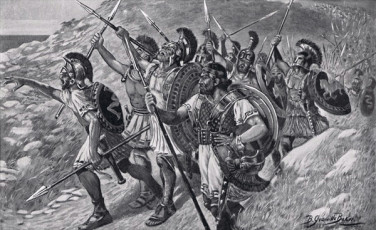Ep. 0093: 10 Books to Slay the State

Join CJ as he discusses:
- The Law by Frederic Bastiat
- The Politics of Obedience: The Discourse on Voluntary Servitude by Etienne de la Boetie
- The State by Franz Oppenheimer
- Inventing the People: The Rise of Popular Sovereignty in England and America by Edmund Morgan
- No Treason: The Constitution of No Authority by Lysander Spooner
- Propaganda: The Formation of Men’s Attitudes by Jacques Ellul
- The Anatomy of the State by Murray Rothbard
- Death by Government by R.J. Rummel
- The Art of Not Being Governed by James C. Scott
- Notes on Democracy by H.L. Mencken
- Plus several other ‘honorable mentions’ that for one reason or another didn’t quite make this top 10 list
[Picture ‘Small Business’ courtesy bplanet at freedigitalphotos.net]
Support the Dangerous History Podcast via Patreon
Internal Link
External Links
- “Isaiah’s Job” by Albert Jay Nock
- A pdf copy of Lysander Spooner’s “No Treason: The Constitution of No Authority”





